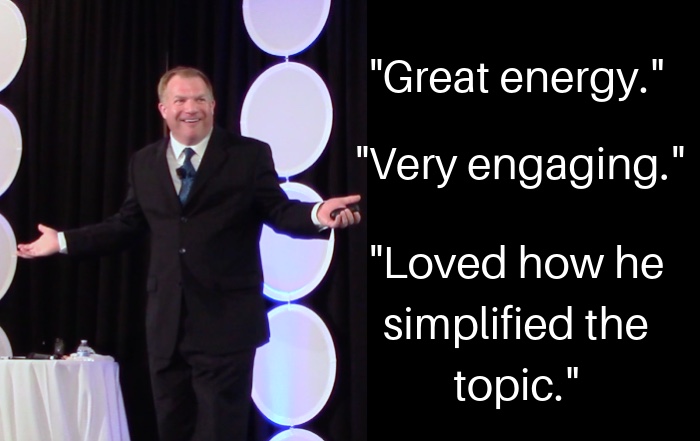 A great problem solving question can help you save time and money, as well as boost employee engagement. I first learned of this question during my TV news days. At the end of an interview, I would ask the interview subject a very simple question: “Anything else?”
A great problem solving question can help you save time and money, as well as boost employee engagement. I first learned of this question during my TV news days. At the end of an interview, I would ask the interview subject a very simple question: “Anything else?”
No matter how many other questions I had asked, very often that response would be one of the featured soundbites in my story. Why was asking this question so powerful?
- Some may think they’re only supposed to answer the questions they’ve been asked, even if they have a useful piece of information that’s outside those questions. This gave them permission to respond and tell me about something they thought I should know.
- Others may believe what’s on their mind is not important to you. The question established value for their opinions.
- And a few would use the question to more clearly restate a previous point. They got a chance to focus their thoughts.
Why You Need to Ask the Problem Solving Question
In your business, are you tapping into your employee’s experience and expertise? Are you considering big decisions, without consulting them?
Often, the person high up or at the top of an organization is thought of as having all the answers. In today’s world, that may not be possible. Perhaps, it would be better to strive to be the one who has the most information.
Why not tap into knowledge from all levels of an organization. This process starts with asking, “Anything else?”
- When laying out future plans, give the information, ask for feedback, and then ask, “Anything else?” Give people one more opportunity to respond.
- During employee evaluations, ask, “Anything else?” to uncover issues or positive opportunities.
- And when something goes wrong, ask, “Anything else?” at the end of the review to make sure a mistake doesn’t happen again.
Before You Start Asking
While you’re committed to becoming a better communicator, you need to keep a few points in mind. Sometimes if these are skipped, employee engagement goes down.
- Don’t confuse asking for information as meaning you have to follow it. For instance, a request for never-ending casual Fridays may not be practical. But the information could inform future incentives for achieving goals.
- You will need to listen to the comments. You’re investing the time to discover thing that may save you time in the future.
- Remember that people have a basic need to be heard. By allowing them the opportunity to share their thoughts, you’ll be perceived as a better leader.
Will you commit to asking my problem solving question for 30 days and see what happens? To help build the habit, some have posted the words on their computer, their phone, and on their notepad.






